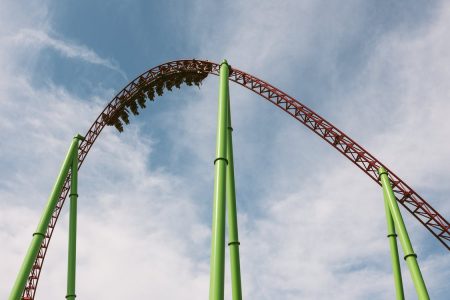
“Life is a roller coaster. There are ups; there are downs. There are hills; there are valleys, peaks, and so on.”
-Martin Landau
We are currently living in a very interesting and difficult time.
Each one of us is dealing with our own personal challenges, while many of us are also living with other people who are each dealing with their own individual and unique challenges.
The lack of schooling coupled with social isolation is presenting parents with a challenge like none other they have ever faced. A challenge that is really without precedent. While some see obstacles, others see opportunities. There are huge opportunities to teach our children both the school subjects they are currently missing, as well as important life lessons. These lessons just need to be presented in a way that the child will accept it.
This is exactly why I love the concept of bridging. Bridging is where we find a life lesson within a story, video or event, we identify it, discuss it, and find other examples of this life lesson within other contexts. Recently, my kids and I discovered a very important life lesson while watching videos of roller coasters.
Most roller coasters start with an incline. The people on the coaster are in a seat which gets lifted up the incline via a chain or a motor. Nearly all of the roller coasters that we’ve seen have a staircase next to the track on this initial incline. One of my sons asked me why all the coasters have this staircase. The answer to this basic question is an important life lesson. Despite the fact that we don’t want something to go wrong, despite the fact that we do all within our power to make sure that nothing goes wrong, we still need to have a contingency plan in effect should something go wrong.
Things break.
Things don’t go as planned.
Are we prepared in case of failure?
Then we bridged to different examples.
A tight-rope walker uses a net, despite the fact that he has no intention of falling.
Then we shifted the focus of this lesson to be more inclusive.
We discussed how one shouldn’t leave things for the last minute, lest something go awry.
All this from watching roller coasters in action.
So my message to the parents who have now been given the role of teacher, is to find life lessons within your daily routine. Point out these important life lessons and work with your children on bridging these lessons into their lives. From a roller coaster one can learn about physics, kinetic energy and gravity. But they can also learn that proper planning means planning for things going wrong. These lessons about life aren’t exclusive to roller coasters, they can be seen everywhere.
So for all of you parents out there making lesson plans (or even daily plans) for your children during this time of isolation, include important life lessons in your curriculum. Don’t just say the lesson with words. Let them see the lesson in practice and then continue the lesson by bridging it into their own lives. Your children might not learn the same amount of studies as they would have had they been at school during this time, but that doesn’t mean they can’t come out of all of this more educated.
_____________
Yisroel Picker is a Social Worker who lives in Jerusalem. He has a private practice specializing in working with people of all ages helping them understand their own thought processes, enabling them to improve their level of functioning, awareness, social skills and more.
To contact Yisroel about speaking at a child safety event or to discuss a personal case, email him at yisroel@ympicker.com
Follow Yisroel on LinkedIn Here.
Follow Yisroel on Facebook Here.



















